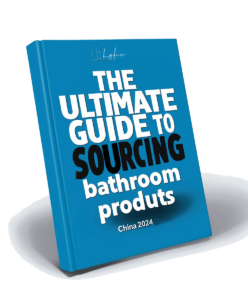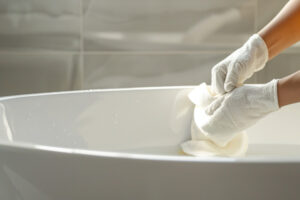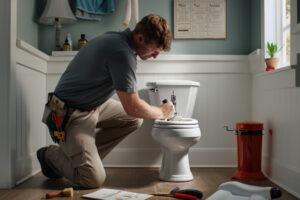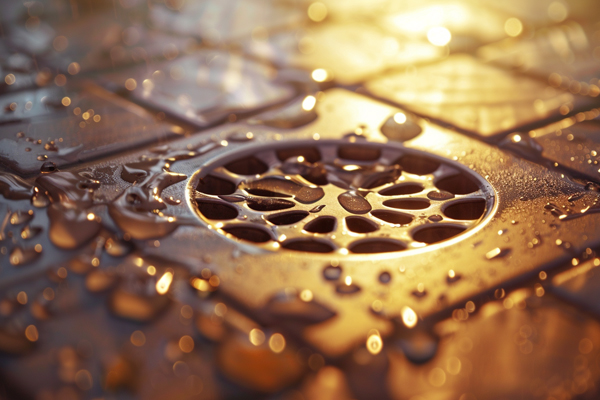
Bad smells in the bathroom can be frustrating. They often come from shower drains, disrupting your comfort at home.
Identifying the cause and applying effective solutions can help eliminate these odors permanently1.
Learn how to tackle this issue and maintain a fresh-smelling bathroom.
What causes bad smells in shower drains?
Shower drains often emit odors due to clogs, trapped hair, or accumulated soap residue.
Odors are typically caused by organic materials decomposing within the drain. Regular cleaning prevents buildup.
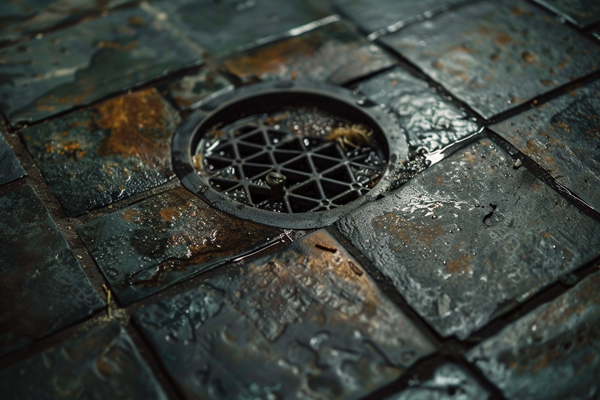
To prevent bad smells, it is essential to address the root cause. Organic materials, such as hair and soap scum, trap bacteria and decompose over time. Poor ventilation can worsen the issue, as stagnant air amplifies the odor. Additionally, a dry P-trap2 can allow sewer gases to escape into your bathroom. Regular cleaning and inspections are critical.
Common Causes of Shower Drain Odors
| Cause | Description |
|---|---|
| Hair buildup | Traps debris and promotes bacterial growth. |
| Soap residue | Creates a sticky layer inside the drain. |
| Dry P-trap | Allows sewer gases to rise into the bathroom. |
Why does my shower drain smell like sewage?
Sewage odors often result from issues with the drain's plumbing, such as a dry P-trap or a blocked vent pipe3.
When a P-trap dries out, sewer gases escape, creating an unpleasant smell.
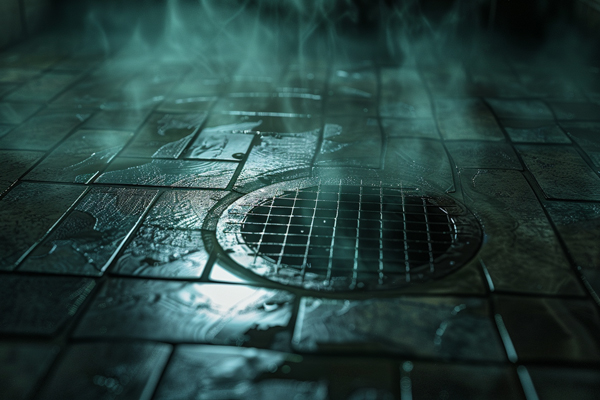
If your bathroom smells like sewage, check the P-trap first. Water in the P-trap forms a seal that blocks sewer gases. If this seal is absent, gases will escape into your bathroom. Another common cause is a clogged vent pipe, which disrupts the air pressure needed for proper drainage. Professional inspection is often necessary to fix these plumbing issues.
Steps to Address Sewer Odors
- Inspect the P-trap for water levels.
- Check for clogs in vent pipes.
- Seek professional help if the smell persists.
Why does the shower drain smell even if it is not blocked?
A shower drain can smell due to bacterial growth or a malfunctioning P-trap, even if there is no visible blockage.
Bacteria thrive in moist environments, producing odors without an obvious clog.

Even without a blockage, bad odors can develop. Bacteria flourish in warm, damp drains, breaking down organic matter and releasing foul smells. A damaged or improperly installed P-trap can exacerbate the issue. To combat this, disinfect your drain regularly4 and check the integrity of your plumbing system.
Preventive Tips
- Flush the drain with hot water weekly.
- Use a drain cleaner or vinegar and baking soda monthly.
- Check plumbing components for damage.
How can you fix a smelly shower drain?
You can resolve a smelly drain by using natural or chemical cleaners, clearing clogs, and ensuring the P-trap is functioning.
Simple steps like flushing the drain with boiling water can help reduce odors.
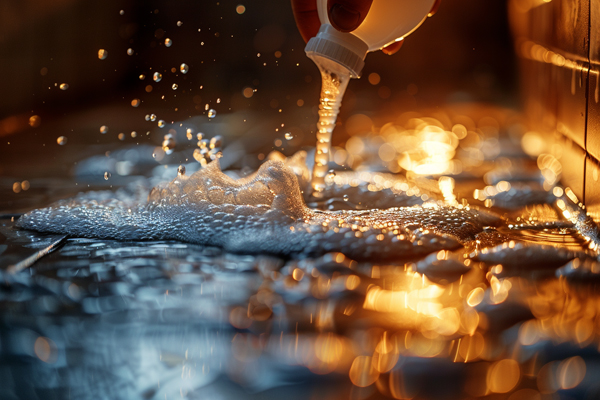
Begin by pouring boiling water down the drain to dissolve grease and soap scum. Follow up with a mixture of baking soda and vinegar for natural cleaning. Let it sit for 15 minutes before rinsing with hot water. For persistent odors, a drain snake5 or chemical cleaner may be required. Always follow safety precautions when using strong cleaning agents.
Steps for Cleaning a Smelly Drain
| Method | Materials Needed | Time Required |
|---|---|---|
| Natural cleaning | Baking soda and vinegar | 20 minutes |
| Chemical cleaning | Commercial drain cleaner | 10 minutes |
| Mechanical cleaning | Drain snake or plunger | 15 minutes |
Best products to clean smelly shower drains
Various products, such as enzymatic cleaners6 and chemical solutions, effectively eliminate odors in shower drains.
Enzymatic cleaners break down organic matter without harsh chemicals.
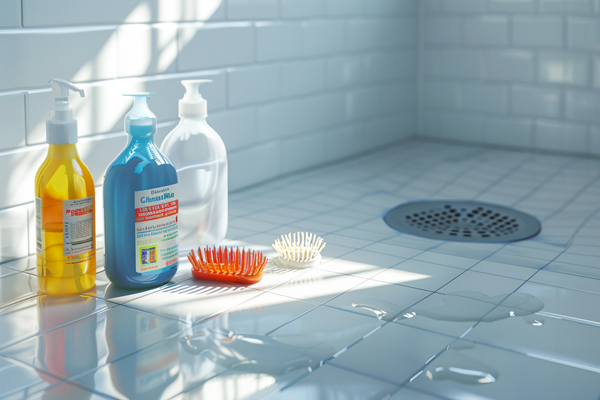
Enzymatic cleaners use natural enzymes to break down hair, soap, and grease, offering an eco-friendly solution. Chemical drain cleaners, on the other hand, provide fast results but may damage pipes if used excessively. Choose the product based on your drain's condition and the severity of the smell.
Recommended Products
| Product Type | Key Benefits |
|---|---|
| Enzymatic cleaner | Eco-friendly, safe for pipes |
| Chemical cleaner | Quick results, strong action |
Is pouring boiling water down the drain effective?
Pouring boiling water7 can help dissolve light clogs and kill bacteria, but it may not be effective for severe odors.
Boiling water is a simple, cost-effective solution for minor blockages.

While boiling water can clear grease and soap buildup, it is not a permanent fix for bad smells. It is most effective when used regularly as a preventive measure. Avoid using it on PVC pipes, as extreme heat can weaken the material over time.
How to unblock a smelly shower drain?
Unblocking a smelly drain requires tools like a drain snake, plunger, or chemical cleaner8 to remove debris.
Clearing blockages ensures better water flow and eliminates odors.
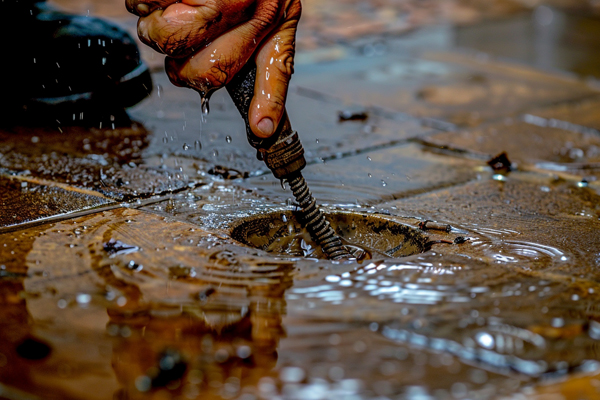
Start by using a plunger to dislodge the clog. If this doesn’t work, a drain snake can help remove hair and debris. Chemical cleaners should be a last resort due to their potential to damage pipes. Regular maintenance is key to avoiding blockages.
How to eliminate sewer smells in the bathroom?
Eliminating sewer smells involves addressing plumbing issues, using air fresheners, and maintaining proper ventilation.
Fixing the P-trap9 and cleaning drains regularly can prevent sewer odors.
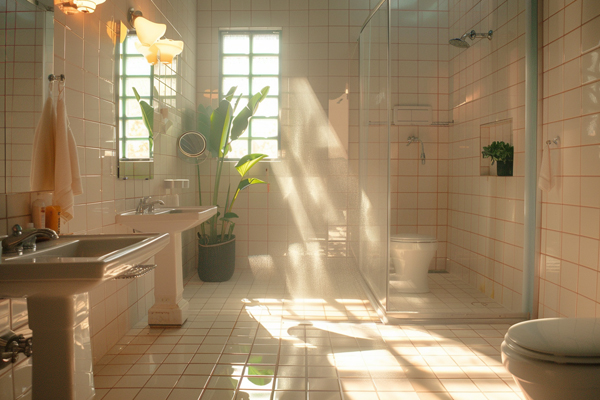
Check for leaks in the plumbing system and ensure that all connections are sealed tightly. Air fresheners and dehumidifiers can mask minor odors temporarily. Long-term solutions include fixing plumbing issues and improving ventilation.
Conclusion
Eliminating bad smells from shower drains requires identifying the cause, using the right cleaning methods, and maintaining your plumbing system. Regular cleaning, proper ventilation, and addressing plumbing issues will keep your bathroom fresh and odor-free.
-
Explore proven strategies to permanently remove bad smells from your bathroom, enhancing your home's comfort and hygiene. ↩
-
Learning about the role of a P-trap in preventing sewer gases can guide you in maintaining proper plumbing hygiene. ↩
-
Learning about blocked vent pipes can provide insights into maintaining proper air pressure in your plumbing system. ↩
-
Regular disinfection of your shower drain is crucial for preventing bacterial growth and ensuring a fresh-smelling bathroom. ↩
-
Mastering the use of a drain snake can save you money on plumbing services and effectively remove blockages. ↩
-
Discover top-rated enzymatic cleaners that are eco-friendly and safe for your pipes, ensuring a clean and odor-free shower drain. ↩
-
Discover the effectiveness and limitations of using boiling water for drain maintenance, ensuring you use the best method for your plumbing. ↩
-
Discover which chemical cleaners are effective yet safe for your plumbing, helping you avoid potential pipe damage. ↩
-
Discover the role of a P-trap in your plumbing system and how maintaining it can keep your home free from unpleasant sewer smells. ↩


